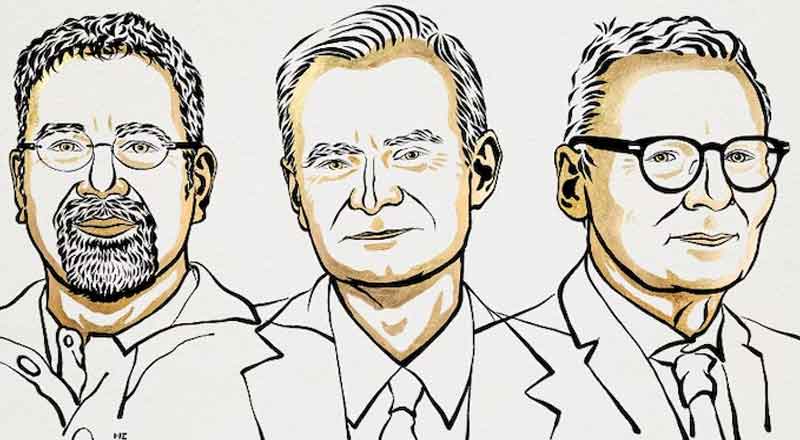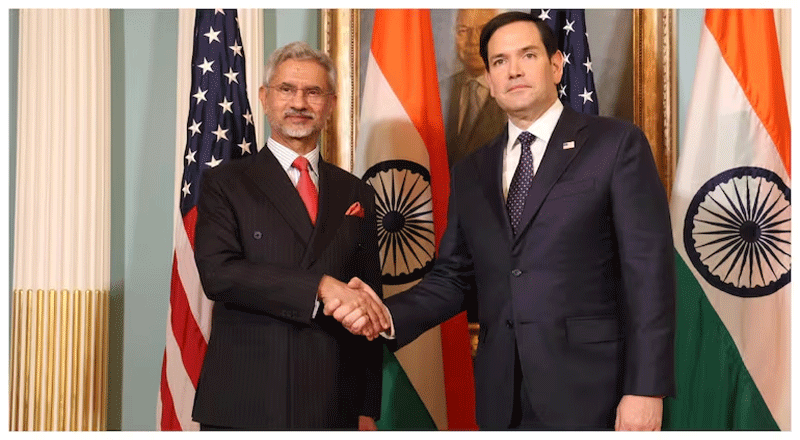Researchers Recognized for Insights into the Role of Political Institutions in Shaping Economic Development
Daron Acemoglu, Simon Johnson, and James A. Robinson have been awarded the 2024 Nobel Prize in Economics for their pioneering research on how political institutions are formed and how they influence a nation’s prosperity. The Nobel Committee highlighted the trio’s work for offering a deeper understanding of how institutional changes impact economic growth and inequality across countries.
The Nobel Committee, in a statement on X, praised the laureates for developing a framework that explains how conflicts over resource distribution and decision-making power between elites and the masses shape political institutions. This model offers insights into why some nations succeed economically while others remain trapped in poverty.
The Nobel Prize in Economics: A Brief Overview
The official name of the Nobel Economics Prize is the “Bank of Sweden Prize in Economic Sciences in Memory of Alfred Nobel.” It was established in 1968 by Sweden’s central bank as a tribute to Alfred Nobel, the 19th-century inventor of dynamite and the founder of the original five Nobel Prizes. The first recipients of the prize were Ragnar Frisch and Jan Tinbergen in 1969.
This year, the Nobel Economics Prize comes with a cash award of 11 million Swedish kronor (approximately $1.1 million), which will be equally shared among the three laureates. The prize will be officially awarded on December 10. Acemoglu and Johnson are currently professors at the Massachusetts Institute of Technology (MIT), while Robinson is affiliated with the University of Chicago.
The Core of Their Research: Institutions and Economic Inequality
The work of Acemoglu, Johnson, and Robinson focuses on the role of political institutions in determining the economic success or failure of nations. Their research shows that political institutions shape a country’s economic trajectory by determining who controls resources and how decisions are made.
One of the key insights from their work is that more inclusive political institutions, which give a greater voice to the masses rather than concentrating power in the hands of the elite, tend to foster economic development. Their dynamic model incorporates game-theory principles to explain how ruling elites respond to threats from the populace, sometimes opting to expand political participation to preserve their power. This model has become widely used in political and economic analysis, providing valuable insights into the relationship between democracy, institutional reform, and economic growth.
Addressing Income Disparities Across Nations
One of the most significant contributions of the trio’s research is its application to understanding global income disparities. The richest 20% of countries are roughly 30 times wealthier than the poorest 20%, and this gap has remained persistent over the past 75 years. The research by Acemoglu, Johnson, and Robinson provides credible, quantitative analysis of why these inequalities exist and persist.
Their studies have shown that colonial histories play a major role in shaping current political and economic conditions. Countries that were once colonized often adopted the institutional frameworks imposed by their colonizers, which had long-lasting impacts on their economic development. Nations with inclusive political institutions, allowing broad participation in decision-making, tend to be more prosperous. In contrast, those with extractive institutions, where power and wealth are concentrated in the hands of a few, often struggle with poverty and underdevelopment.
A Leap Forward in Understanding Poverty Traps
Although the work of Acemoglu, Johnson, and Robinson does not offer a definitive solution to global poverty, it has made significant strides in helping economists and policymakers understand why some countries remain trapped in poverty while others thrive. Their model has become a standard tool for analysing political and economic reforms and has influenced both academic research and practical policy decisions.
Jakob Svensson, chair of the Committee for the Prize in Economic Sciences, remarked on the laureates’ work, saying, “Reducing the vast differences in income between countries is one of our time’s greatest challenges. The laureates have demonstrated the importance of societal institutions for achieving this.”
The trio’s contributions have shaped the understanding of how political institutions affect economic development and have introduced new methodologies to the study of these complex issues. Their work underscores the importance of inclusive governance in promoting sustainable economic growth and reducing global inequality.
The Ongoing Impact of Their Research
The work of Acemoglu, Johnson, and Robinson continues to influence economic research and policymaking around the world. Their insights have opened up new avenues for exploring how institutional reforms can be leveraged to address persistent inequality and promote development.
As policymakers and economists grapple with global challenges such as poverty, inequality, and governance, the work of these Nobel laureates offers critical tools for understanding and addressing these pressing issues. Their ground breaking research represents a major leap forward in the pursuit of a more prosperous and equitable world.
(With inputs from agencies)





